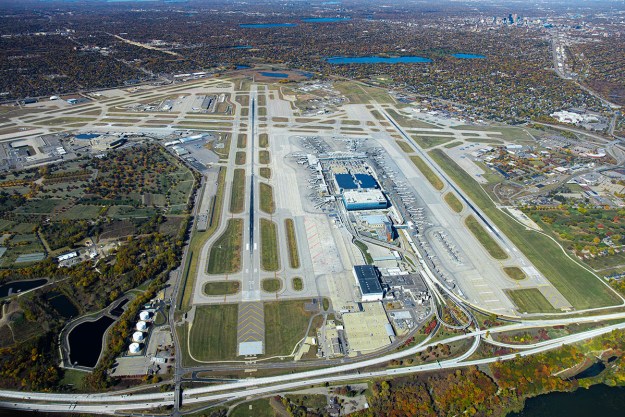The Metropolitan Airports Commission (MAC) board approved the long-term plan for Minneapolis-St. Paul International Airport (MSP) today. The MSP Airport 2040 Long-Term Plan outlines potential projects to improve the terminals, parking facilities and airfield to accommodate passenger growth and other changes in aviation activity over the next two decades.
MSP is the 19th busiest airport in North America by passenger traffic based on the latest annual data by Airports Council International. The long-term plan is based on a forecast that the airport will serve approximately 56 million passengers by 2040, compared to the current all-time record of 39.5 million passengers set in 2019. MSP’s runway system has sufficient capacity to meet that demand based on the operations forecast through 2040. Total aircraft operations are expected to increase to approximately 510,000 by 2040, compared to 2023 total operations of 323,929, and well below the high mark of 540,727 annual operations in 2004.
Highlights of the long-term plan include new gates that are part of a near-term need to expand Terminal 2 to the south and a long-term project to extend Concourse G in Terminal 1. There are mid- and long-term projects to reconstruct concourses E and F and to create a passenger connector between Terminals 1 and 2. Other proposed projects focus on improving parking and reducing roadway congestion in front of the terminals. Recommended airfield changes include new taxiways to improve operational efficiency and safety, as well as projects for additional aircraft parking and expanded cargo facilities. Click here to see a summary of proposed projects.
The MSP Long-Term Plan incorporated extensive research on passenger and aircraft trends along with current airport infrastructure capabilities. It also reflects feedback and input gathered through an inclusive stakeholder engagement program that included elected officials, regional community partners, airlines, federal and state agencies, business leaders, travel groups, and members of the public. The public engagement process recently concluded with the plan’s review by the Metropolitan Council to make sure the plan is consistent with all components of the regional development guide.
- SEO Powered Content & PR Distribution. Get Amplified Today.
- PlatoData.Network Vertical Generative Ai. Empower Yourself. Access Here.
- PlatoAiStream. Web3 Intelligence. Knowledge Amplified. Access Here.
- PlatoESG. Carbon, CleanTech, Energy, Environment, Solar, Waste Management. Access Here.
- PlatoHealth. Biotech and Clinical Trials Intelligence. Access Here.
- Source: https://worldairlinenews.com/2024/05/20/mac-board-approves-msp-airports-2040-long-term-plan/




